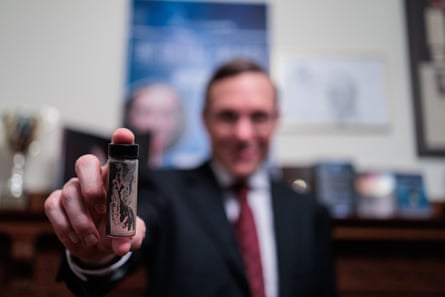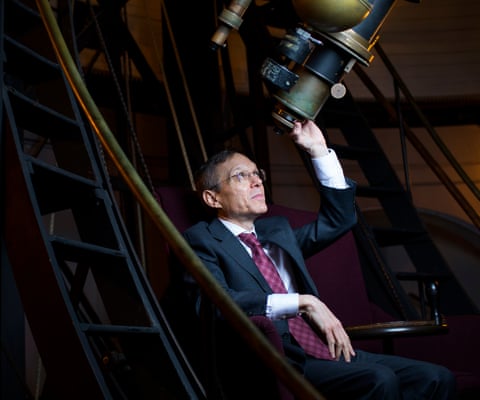The alien hunter: has Harvard’s Avi Loeb found proof of extraterrestrial life?
The astrophysicist and professor likes to ruffle feathers – and says his critics are merely jealous. He discusses UFOs, interstellar objects and the risks of his all-consuming search
Avi Loeb has a chip on his shoulder. For years, the Harvard astrophysicist has been trying to find aliens. He’s in the middle of trying to record the entire sky with an international network of telescopes and recently travelled to Papua New Guinea to find out if a meteor detected in 2014 was actually part of an interstellar spaceship. Meanwhile, academics and pundits snipe at him in the media, and he’s sick of it.
“I hear that the scientists say: ‘Why would you go to the Pacific Ocean? It’s a waste of time, waste of energy.’ And I say: ‘I’m not taking any of your research money; I’m not asking you to do anything. I’m doing the heavy lifting.’ Why would they be negative about it?” Loeb complains as he shows me around his mansion in Lexington, Massachusetts, one of the richest boroughs in the US. He’s busy rehearsing for a one-man show about his life and work, which he’ll perform in his attic tomorrow. Apparently, I’m the “only journalist to be invited”, apart from the camera crew filming a documentary.
Loeb, 61, has just finished a five-mile run, which he does every day at about 5am before knuckling down to work. Small, suited, bespectacled and well groomed, he looks a bit like Jeffrey Archer in a schoolboy uniform. After a very brief tour of his office – blink and you’ll miss it – we arrive in his immaculately tidy living room. He offers me sparkling water and a bowl of chocolates. Loeb is slender, but he loves chocolate, consuming 800 calories a day from it. “I cannot give up,” he says. “I’m addicted.”

Is he nervous about his show? “No, no,” he says. “Because I’m playing myself – there’s no difference.” Netflix will be filming it; in June documentary-makers accompanied him on his trip to Papua New Guinea where he recovered debris from a fireball that landed in the sea to the north of Manus Island. “There were over 50 film-makers and producers that wanted to document what I’m doing. They wanted to be on the ship, but I said I had a contract just with one.”
A distinguished scientist, Loeb has published hundreds of papers, as well as a bestselling book, Extraterrestrial: The First Sign of Intelligent Life Beyond Earth. He’s the Frank B Baird Jr professor of science at Harvard, the director of the Institute for Theory and Computation at the Center for Astrophysics, and the director of the Galileo project at Harvard. But he was relatively unknown until a peculiarly shaped object zoomed through our solar system in 2017. Astronomers described it as having “extreme dimensions” and concluded it must be interstellar. Officially known as 1I/2017 U1, it was given the nickname ’Oumuamua – Hawaiian for “scout” or “first distant messenger” and pronounced like a child startled by a cow: Oh mooer mooer. . .




No comments:
Post a Comment